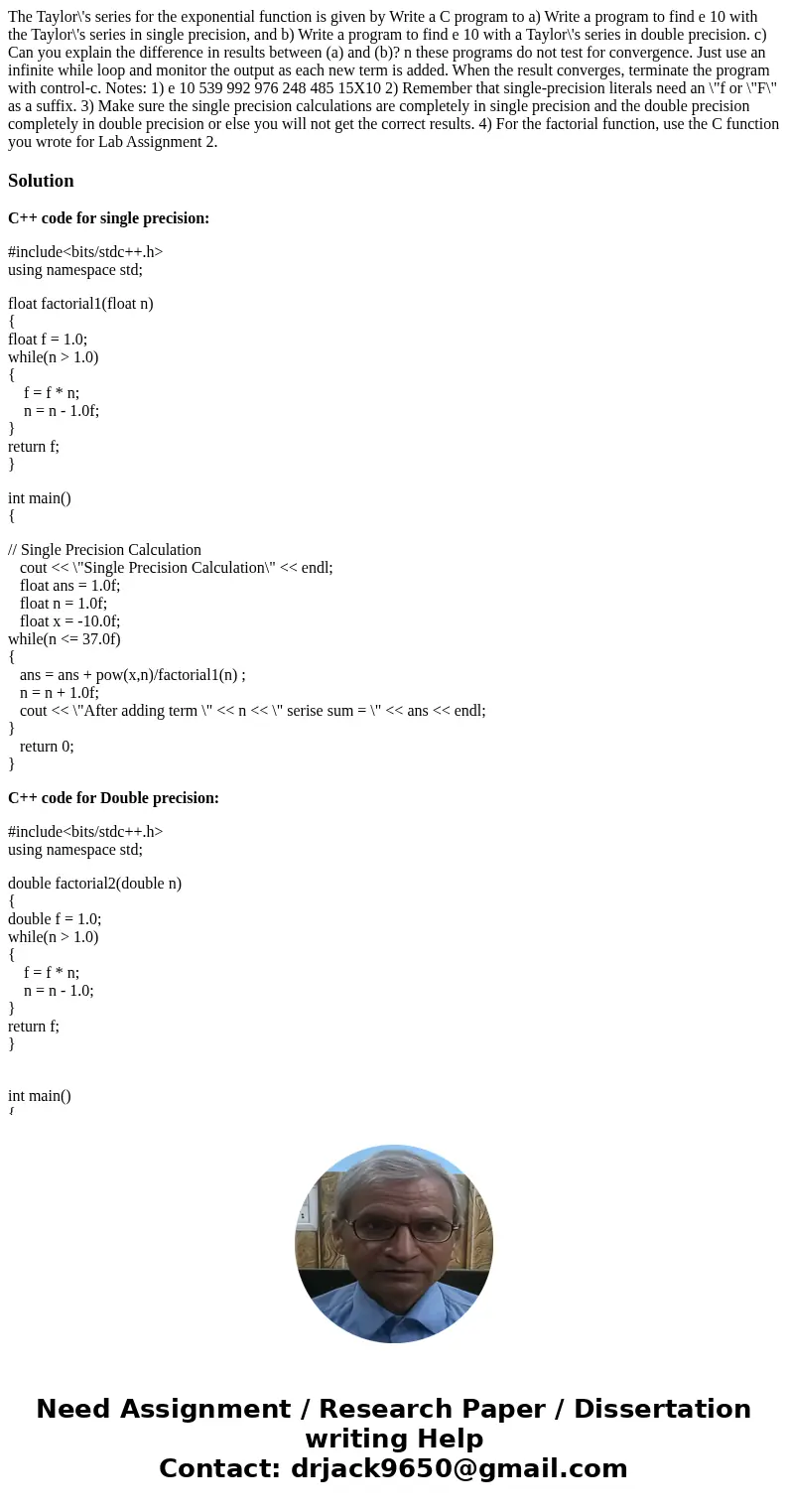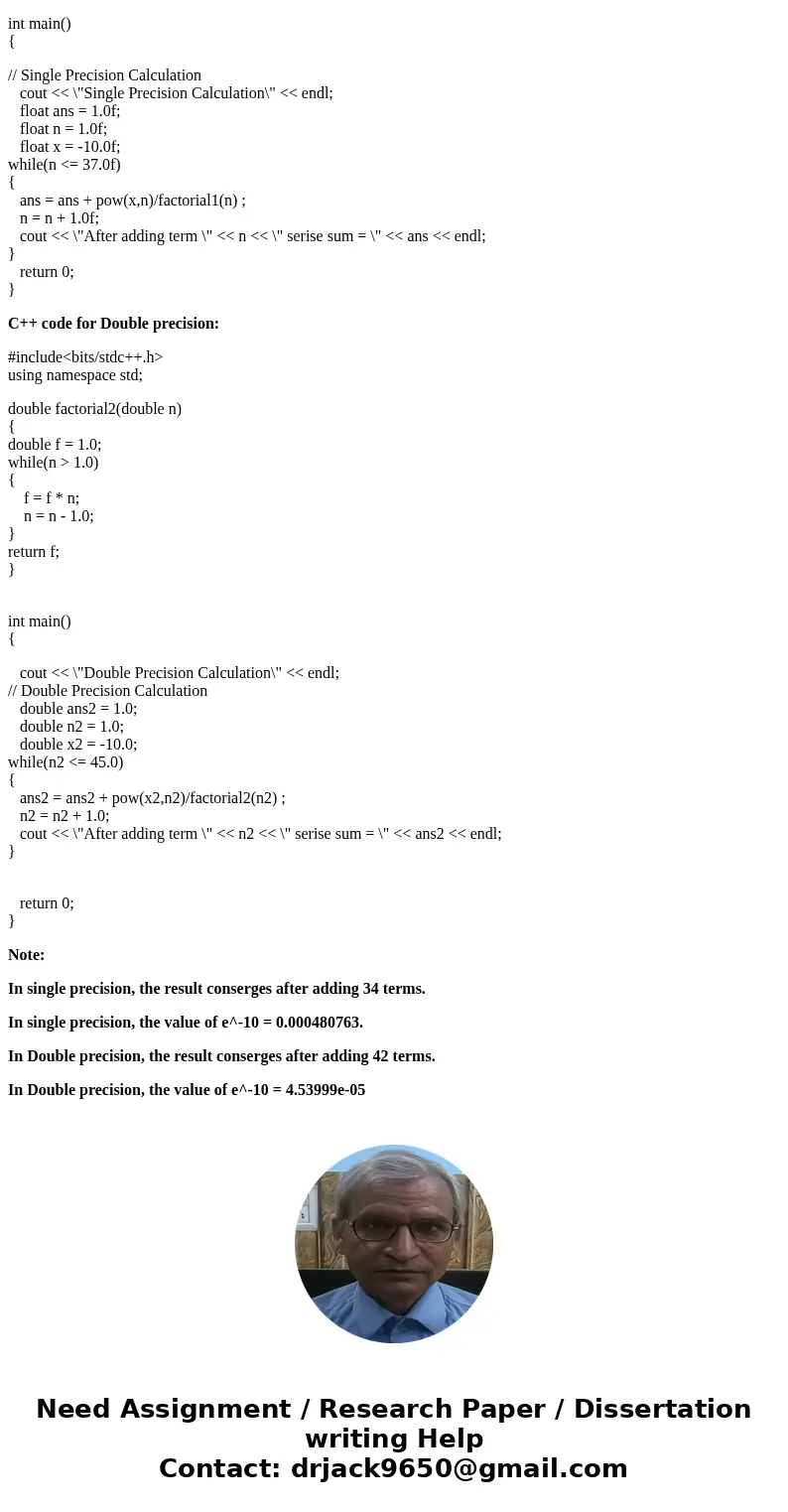The Taylors series for the exponential function is given by
Solution
C++ code for single precision:
#include<bits/stdc++.h>
using namespace std;
float factorial1(float n)
{
float f = 1.0;
while(n > 1.0)
{
f = f * n;
n = n - 1.0f;
}
return f;
}
int main()
{
// Single Precision Calculation
cout << \"Single Precision Calculation\" << endl;
float ans = 1.0f;
float n = 1.0f;
float x = -10.0f;
while(n <= 37.0f)
{
ans = ans + pow(x,n)/factorial1(n) ;
n = n + 1.0f;
cout << \"After adding term \" << n << \" serise sum = \" << ans << endl;
}
return 0;
}
C++ code for Double precision:
#include<bits/stdc++.h>
using namespace std;
double factorial2(double n)
{
double f = 1.0;
while(n > 1.0)
{
f = f * n;
n = n - 1.0;
}
return f;
}
int main()
{
cout << \"Double Precision Calculation\" << endl;
// Double Precision Calculation
double ans2 = 1.0;
double n2 = 1.0;
double x2 = -10.0;
while(n2 <= 45.0)
{
ans2 = ans2 + pow(x2,n2)/factorial2(n2) ;
n2 = n2 + 1.0;
cout << \"After adding term \" << n2 << \" serise sum = \" << ans2 << endl;
}
return 0;
}
Note:
In single precision, the result conserges after adding 34 terms.
In single precision, the value of e^-10 = 0.000480763.
In Double precision, the result conserges after adding 42 terms.
In Double precision, the value of e^-10 = 4.53999e-05


 Homework Sourse
Homework Sourse